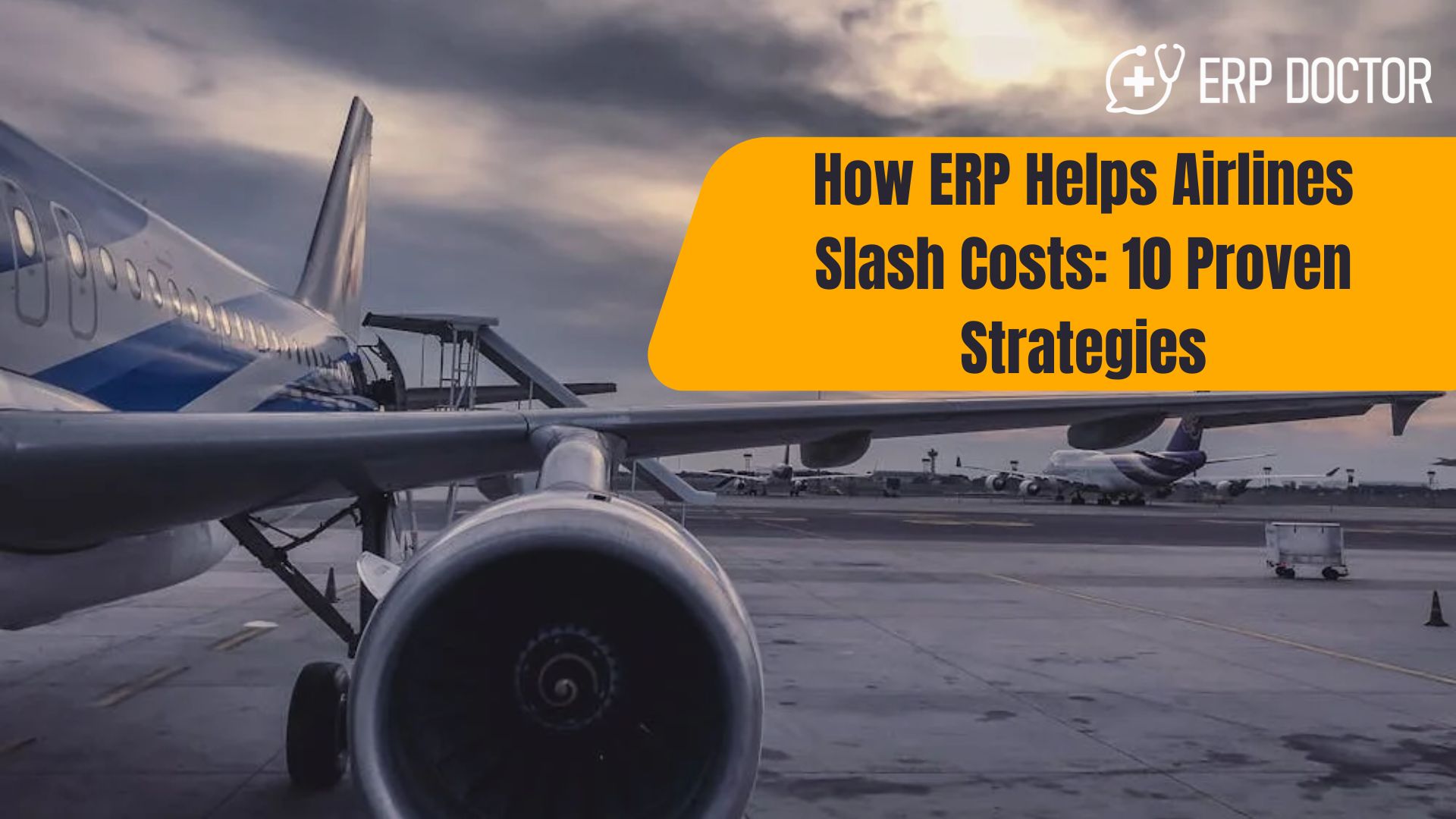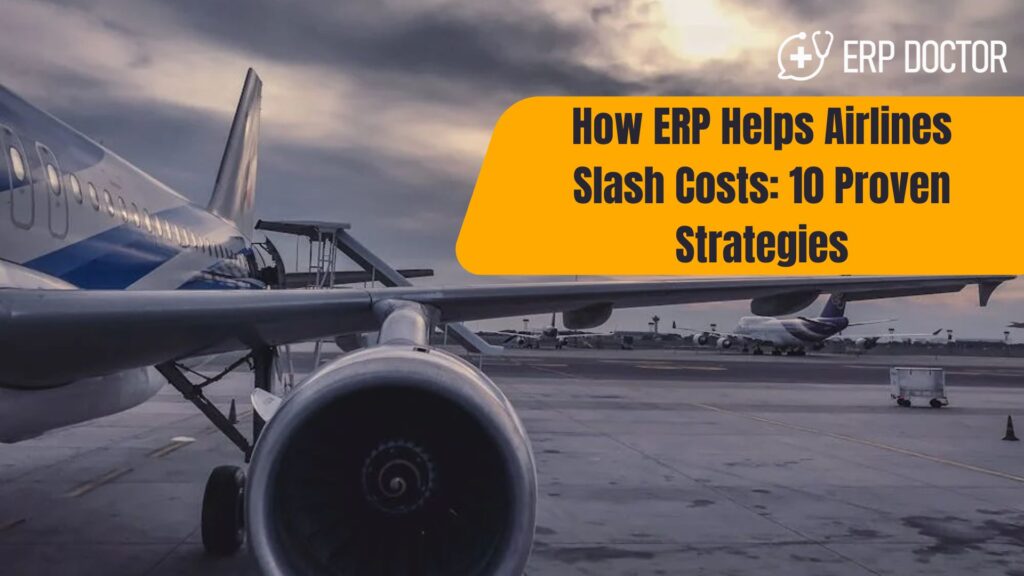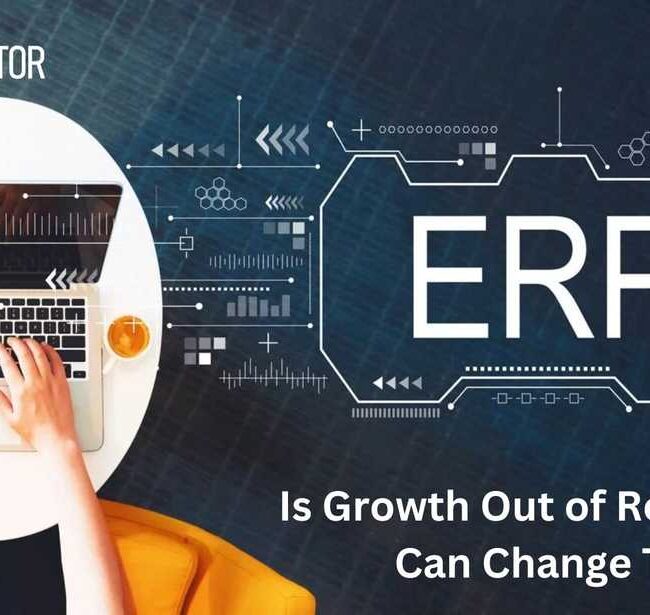
How ERP Helps Airlines Slash Costs: 10 Proven Strategies

Cut Costs, Soar Higher: 10 Ways ERP Optimizes Airline Expenses and Efficiency
ERP software for airlines is a game-changer in cost management, helping aviation companies navigate tight profit margins, high operational expenses, and fluctuating fuel prices. To stay competitive, airlines must implement efficient cost-cutting strategies without compromising service quality. Enterprise Resource Planning (ERP) solutions streamline workflows, automate operations, and optimize financial management, ensuring sustainable profitability.
This blog explores 10 proven ways ERP helps airlines cut costs and enhance efficiency.
1. Fuel Cost Optimization
Fuel expenses account for a significant portion of an airline’s budget. ERP systems provide real-time fuel tracking, predictive analytics, and route optimization, helping airlines reduce fuel consumption and lower costs.
2. Automated Aircraft Maintenance
Unexpected breakdowns and emergency repairs increase operational costs and cause flight delays. ERP enables automated maintenance scheduling, ensuring proactive servicing that minimizes expensive last-minute repairs and downtime.
3. Efficient Inventory Management
Managing spare parts, tools, and consumables efficiently prevents unnecessary stockpiling and wastage. ERP ensures real-time tracking of aviation components, reducing procurement costs and optimizing warehouse space.
4. Smart Crew & Workforce Management
ERP automates pilot and cabin crew scheduling, reducing manual errors and minimizing overtime expenses. With efficient workforce management, airlines can cut labor costs while ensuring compliance with flight regulations.
5. Financial Planning & Budget Control
With real-time financial insights and cost analytics, ERP helps airlines track expenses, optimize cash flow, and manage budgets effectively. This prevents unnecessary spending and improves overall financial stability.
6. Streamlined Passenger & Ticketing Operations
Manual ticketing and passenger handling can lead to delays, errors, and increased operational costs. ERP automates ticketing, baggage tracking, and passenger data management, reducing labor costs and improving customer satisfaction.
7. Lower IT Infrastructure Costs
Instead of using multiple software solutions for different airline functions, ERP integrates finance, HR, maintenance, and logistics into a single system. This reduces IT licensing, software maintenance, and data silos, lowering operational costs.
8. Regulatory Compliance & Risk Management
Non-compliance with aviation laws leads to heavy penalties. ERP helps airlines automate compliance tracking, document management, and reporting, ensuring smooth adherence to industry regulations and avoiding costly fines.
9. Real-Time Data Analytics for Cost Control
ERP solutions provide AI-powered analytics that help airlines identify cost-cutting opportunities by analyzing fuel efficiency, crew productivity, and maintenance schedules. Real-time data ensures informed decision-making and improved profitability.
10. Enhanced Supply Chain & Vendor Management
ERP simplifies procurement, contract negotiations, and supplier relationships, reducing supply chain inefficiencies. By optimizing vendor agreements and tracking deliveries, airlines can cut unnecessary procurement costs.
10 Related FAQs on ERP for the Airline Industry
1. How does ERP help airlines reduce operational costs?
ERP integrates multiple airline functions into one system, reducing manual labor, inefficiencies, and redundant software costs.
2. Can ERP improve fuel efficiency for airlines?
Yes, ERP tracks real-time fuel consumption, optimizes flight routes, and predicts fuel-saving opportunities to cut expenses.
3. How does ERP enhance crew management?
ERP automates crew scheduling, work hour tracking, and compliance adherence, reducing manual errors and minimizing overtime costs.
4. Is ERP beneficial for airline maintenance operations?
Absolutely! ERP automates aircraft maintenance schedules, preventing unexpected breakdowns and reducing costly emergency repairs.
5. How does ERP improve financial planning for airlines?
ERP provides real-time financial tracking, budgeting tools, and cost analysis, ensuring better expense management.
6. Can ERP help airlines comply with regulatory requirements?
Yes, ERP automates compliance tracking, document submissions, and audit reporting, reducing the risk of penalties.
7. How does ERP impact supply chain management in airlines?
ERP optimizes supplier contracts, tracks procurement, and ensures on-time delivery, reducing unnecessary purchasing costs.
8. What cost savings can airlines expect from ERP implementation?
ERP helps airlines cut IT costs, improve fuel efficiency, automate labor management, and reduce operational overheads.
9. Does ERP integrate with existing airline software systems?
Yes, ERP solutions can seamlessly integrate with aviation-specific software to streamline operations without major disruptions.
10. Is ERP implementation expensive for airlines?
While ERP requires an initial investment, its long-term cost savings in fuel, maintenance, labor, and compliance make it highly profitable.
ERP software is a game-changer for airlines looking to reduce costs while enhancing operational efficiency. By optimizing fuel management, maintenance scheduling, workforce allocation, and compliance tracking, ERP ensures long-term savings and better resource utilization. If your airline is looking to improve profitability, investing in an ERP system is the right step forward. Contact us today to explore ERP solutions tailored for your needs!







